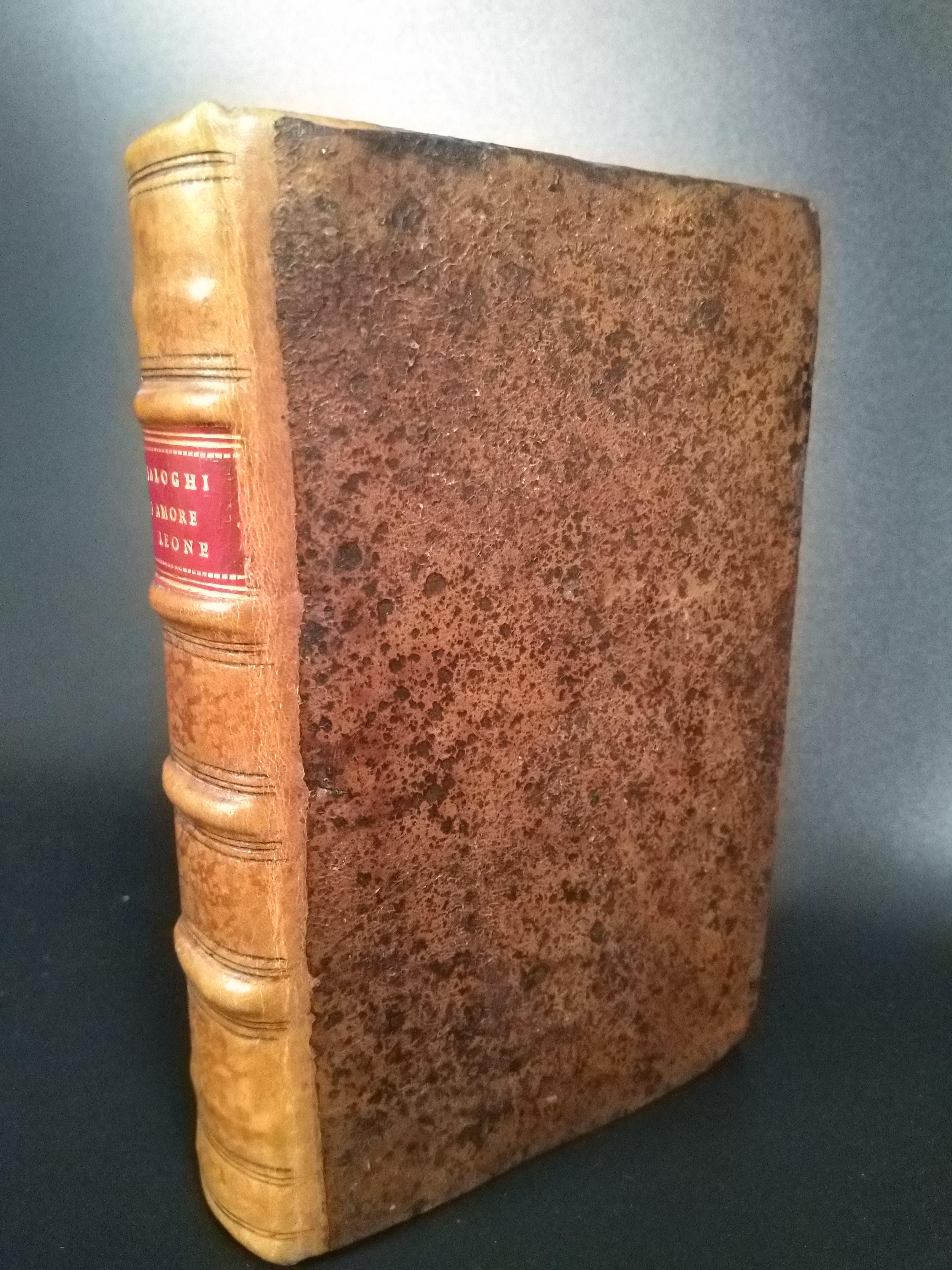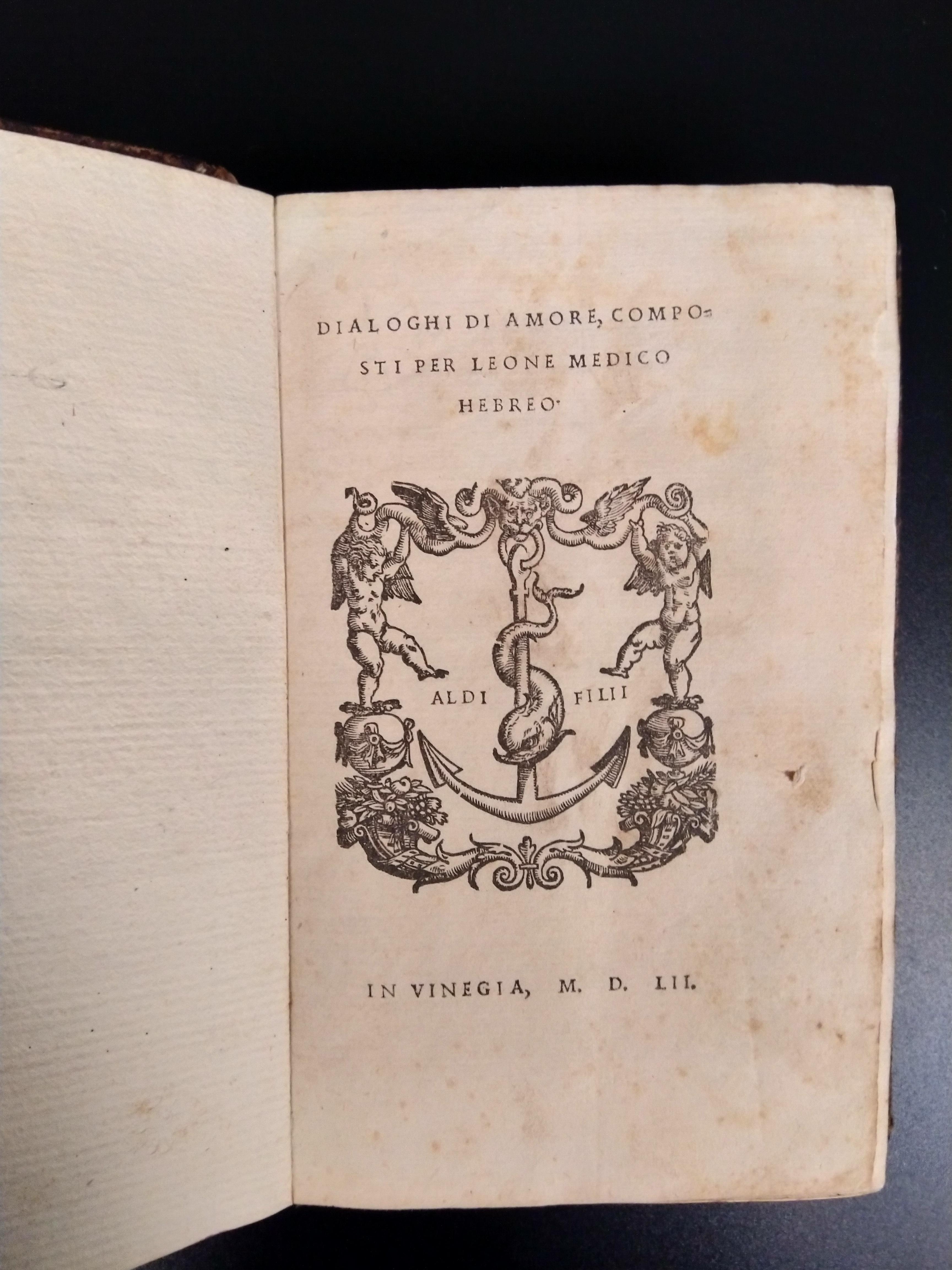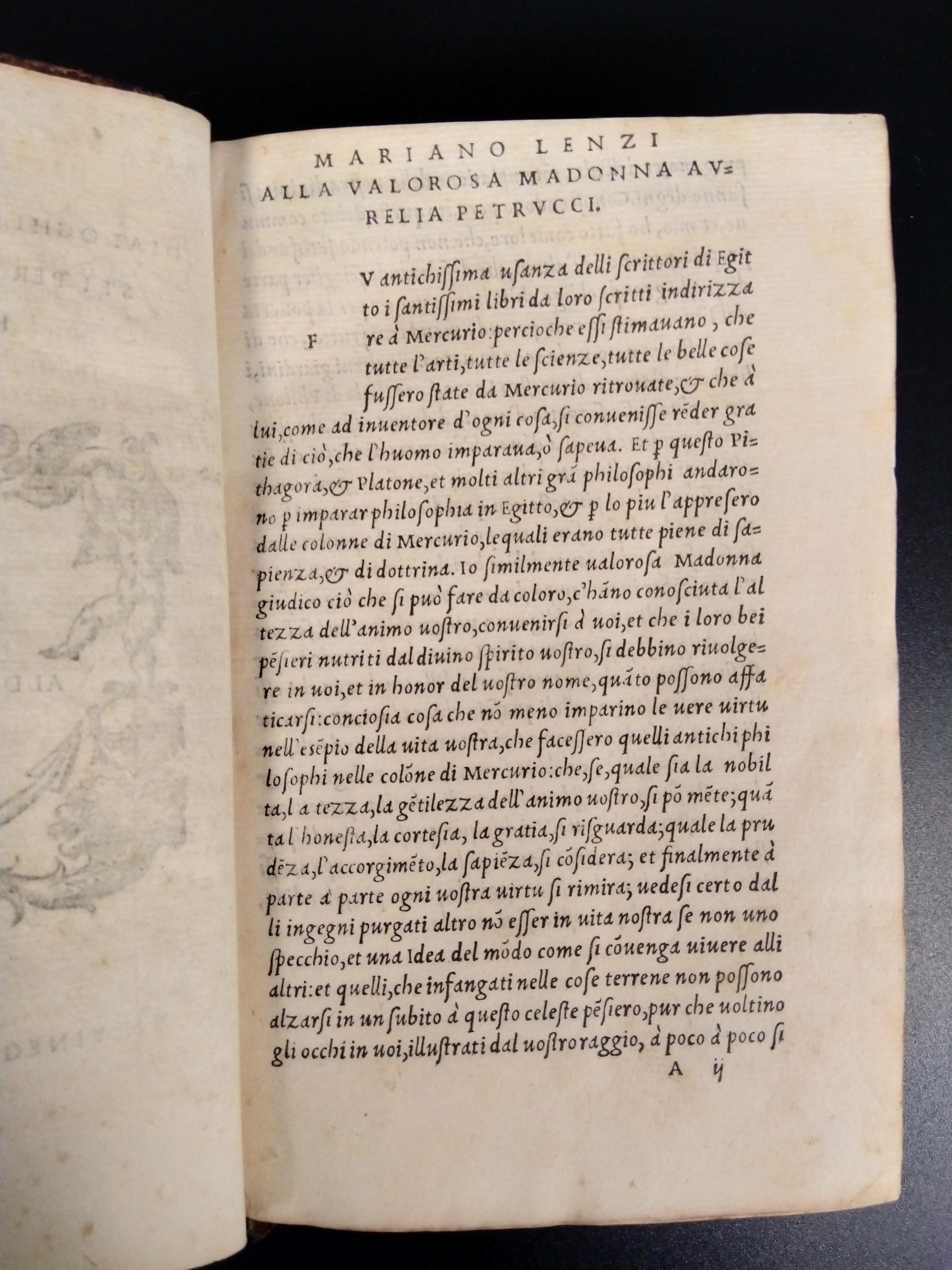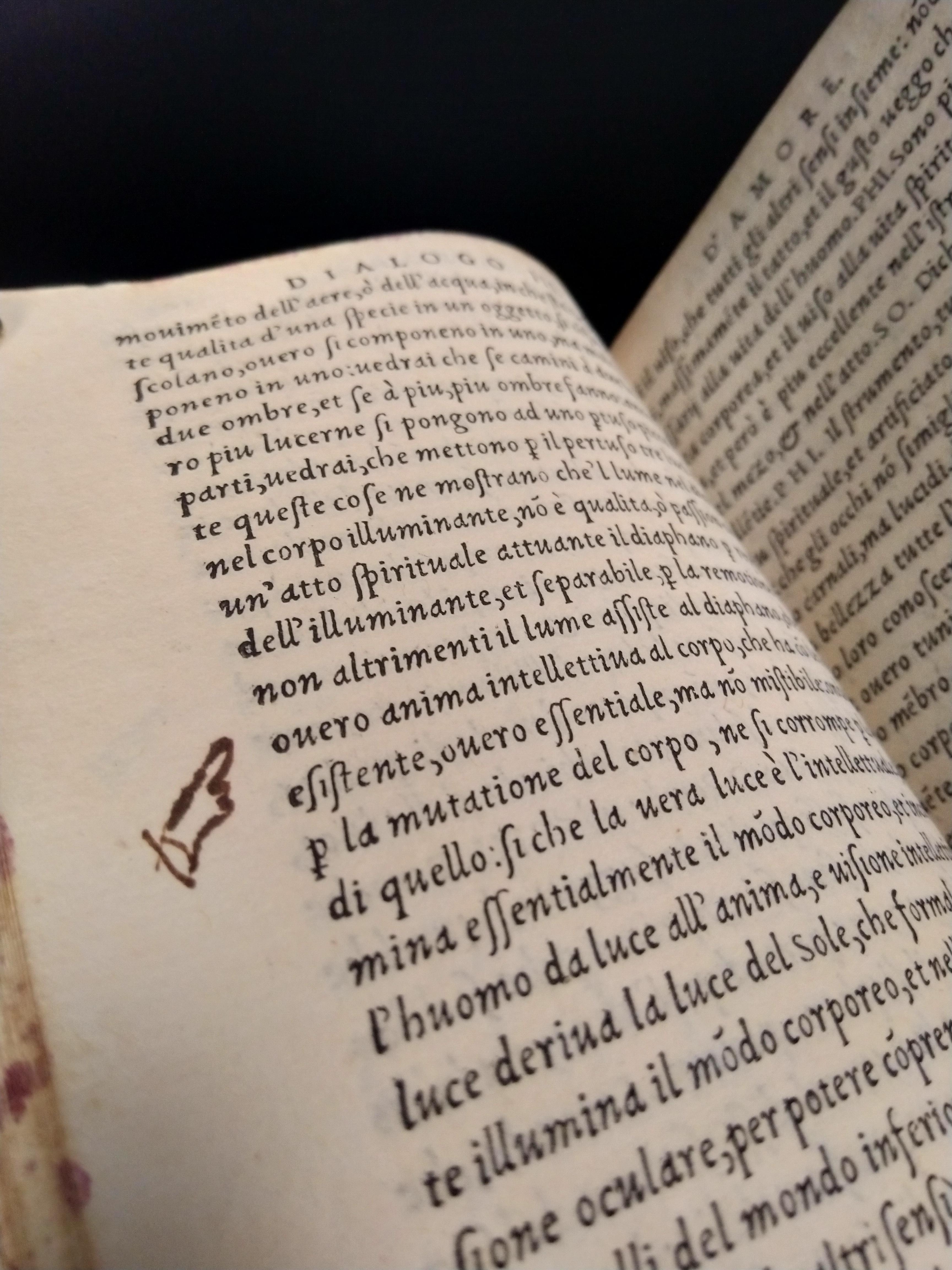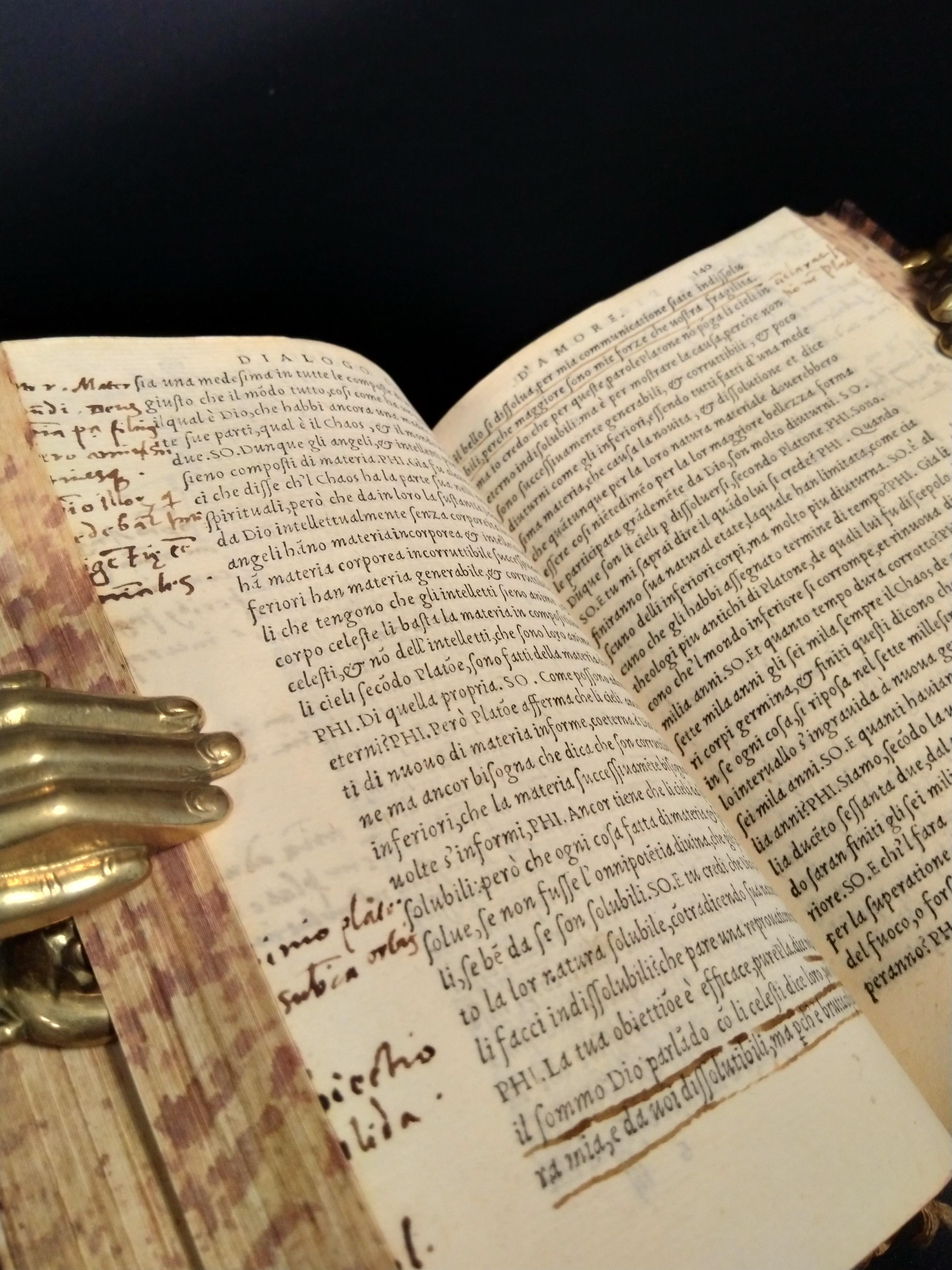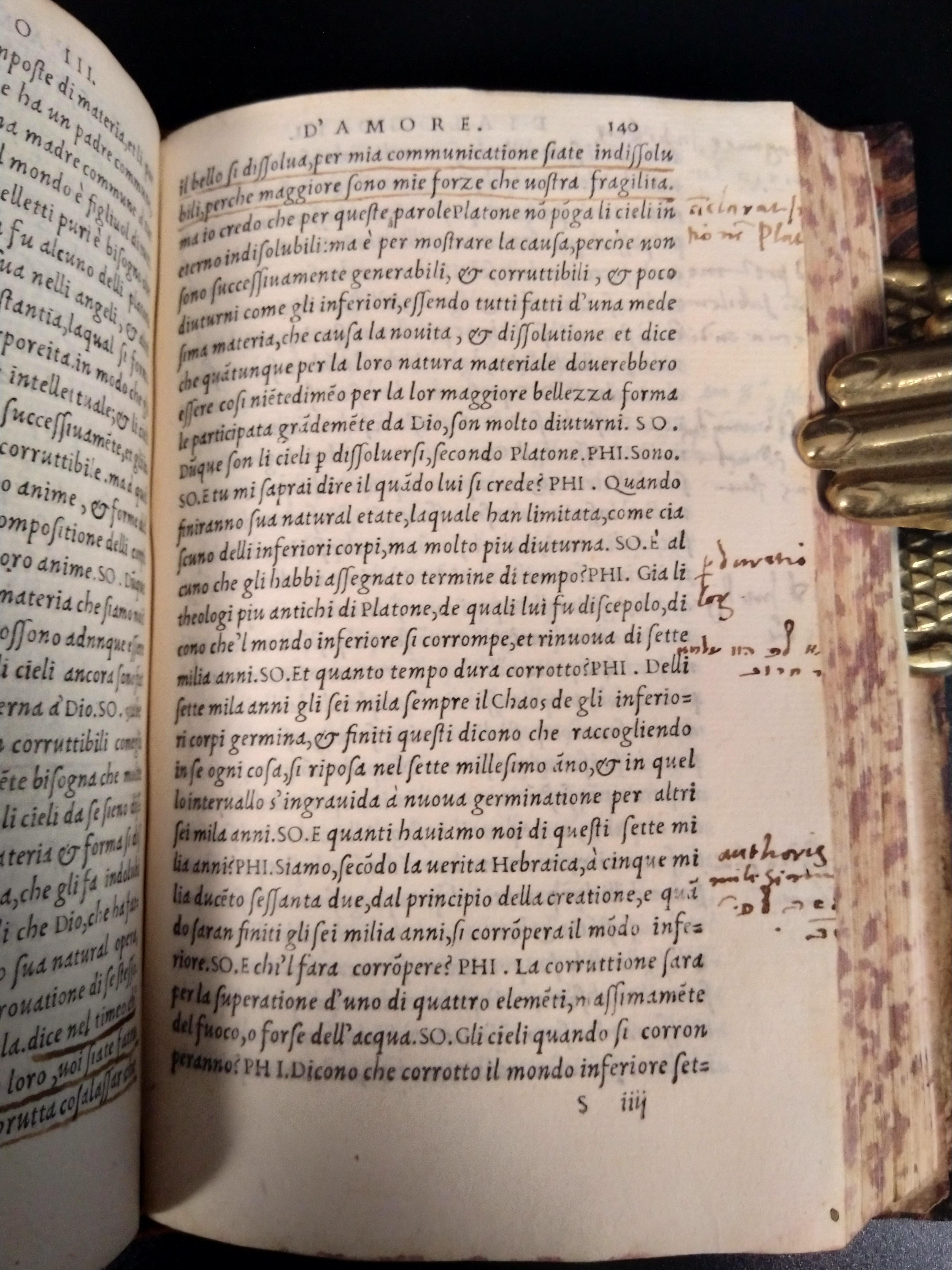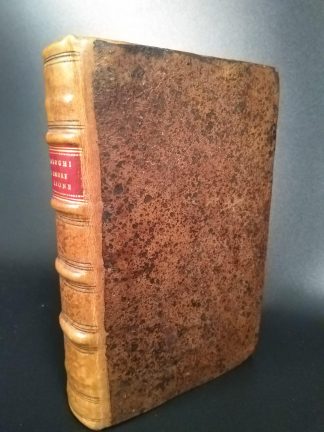ABRAVANEL, Juda ben Isaac.
Dialoghi di amore, composti per Leone medico hebreo
Venice, in casa de figliuoli di Aldo, 1552£2,350.00
8vo. ff. (ii), 3-228. Italic letter. Printer’s device within border on t-p, repeated on verso of last. Guide letters, spaces blank. ‘Vivian de Sola Pinto’ bookplate on paste-down. Very light age-yellowing, a little early marginalia. A good copy in C17th speckled calf, re-backed, red morocco label gilt, all edges speckled.
Abravanel’s (1465 – ca. 1535) important philosophical treatise on love, first published posthumously in 1535. The Dialoghi was exceedingly popular and went through at least five editions (four by Aldus) in twenty years, and was quickly translated into French, Hebrew and Latin. It is notably one of the first original philosophical compositions to be published in the vernacular. “Don Yehudah Abrabanel, the son of Rabbi Yitshak Abrabanel, has been one of the most extraordinary and fascinating personalities in Jewish philosophy on the threshold of modernity.
His Dialoghi d’Amore has become one of the most celebrated books of Renaissance literature and thought. Despite his personal afflictions – the expulsion from Spain in 1492, the abduction and forced conversion of his son by the King of Portugal (about which he wrote a moving poem “complaint on the times”) – he has bequeathed to us one of the most outstanding philosophical books of the epoch. Dialoghi d’Amore is one of the chief expressions of Italian Platonism, revived and flourishing at the time.” Ze’ev Levy.Modeled on the Platonic dialogue, the Dialoghi d’Amore examines the nature of spiritual and intellectual love, which is regarded by Abravanel as the principle dominating all existence, reaching its apotheosis in the love of God. He structured his three dialogues as a conversation between two “characters”, Philo, representing love, and Sophia, representing science or wisdom. The first dialogue is a contemplation on the distinctions between love and desire, or the types of love and their true nature. The second postulates that love is the dominant principle of all life and describes how love operates in human beings’ lives. The third and most lengthy is a discussion of God’s love, how it encompasses all of existence, from the lowest creatures to the heavens. A discussion of beauty and the soul follows, with an analysis of Plato’s ideas. The dialogues cover a huge range of subjects including beauty, the intellect, fascination, the influence of the planets, reproduction, nature, psychology, mans place in the universe, creation, reason, friendship, virtue, poetry and much more. “Abrabanel attempts (especially in the third dialogue of his book) to bring about a merger between Jewish-religious conceptions and Renaissance Platonism. To this purpose he welds together the Jewish concept of love of God with a religious-aesthetic idealization of the world. For the first time in the history of Jewish thought, there was a philosopher who awarded space to aesthetic reflections .. and who set out to explicate and define beauty.” Ze’ev Levy.
Vivian de Sola Pinto (1895-1969) was a poet, professor, literary critic, translator and historian ??. A close friend of Siegfried Sassoon and his second in command on the western front, he appears in “Memoirs of an Infantry Officer” etc under the pseudonym Velmore. A leading authority on D.H. Lawrence, Pinto gave evidence for the defence in the 1960 ‘Lady Chatterly’s lover’ obscenity trial.
An unsophisticated copy of this important work, beautifully printed at the Aldine press.
BM STC It. C16. p. 3. Ren. 154 : 13. Gay. I p. 891.In stock


